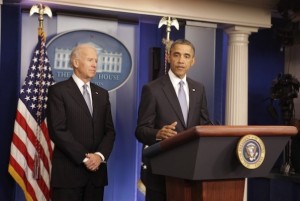What Happens After the Fiscal Cliff?
 As the fiscal cliff looms, efforts are being made to avert the cliff, but little progress is being made. Some lawmakers are predicting that increases in federal income taxes and federal spending cuts will begin to take hold this coming January, unless there are strides made to complete the deal.
As the fiscal cliff looms, efforts are being made to avert the cliff, but little progress is being made. Some lawmakers are predicting that increases in federal income taxes and federal spending cuts will begin to take hold this coming January, unless there are strides made to complete the deal.
With the possibility of such changes happening, the economy stands to be hit by a great jolt. In some predictions economists predict that another recession could be veryconceivable. If the nation were to fall over the so called “cliff”, consumer spending power will greatly decrease and the federal government will see an annual tax increase of about 500 billion dollars. While this will cut the federal budget deficit by a considerable amount, it will be at a great economic price.
According to the Tax Policy Center, on average the federal income tax bill will increase by $3,500. And the average middle income home will see an increase of about $2,000.
If the fiscal cliff actually becomes a reality, federal income taxes will be greatly affected. On December 31, the low ordinary federal income tax, put in place by former president George W. Bush, will expire. An extension by President Obama and Congress was agreed upon in the end of 2010, but this extension will only have a few days remaining. Along with this lapse in the low ordinary federal income tax, Americans will see rates increase up to 15, 28, 31, 36, and 39.6% from the current 10, 15, 25, 28, 33, and 35%.
There is an effort being made by President Obama and his fellow Democrats to extend the Bush era tax rates, but this would only be for those who make less than $200,000 or for a family making less than $250,000. For the rest of those who don’t fall into this category federal income tax rates would increase to the higher pre-Bush era.

